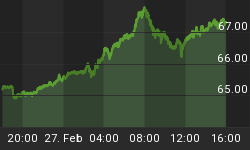200-Day MAs Should Provide Good Feedback:
You do not have to be an investing expert to know events in Europe are dictating the day-to-day movements in all global asset markets. Germany is a leader in Europe because, relative to the rest of the European Union, they have their financial house in order. The trend has been for the stronger nations, such as Germany, Finland, and the Netherlands, to take on more burdens from their over-extended neighbors. As a result, any future bailout activity will impact the finances of the stronger nations. The basic concepts are captured in the following excerpts from Bloomberg:
Proposals for more liberal use of European bailout money are likely to face resistance in creditor countries such as Germany, Finland and the Netherlands, the scenes of growing taxpayer opposition to more aid.
"It's hard enough to bail out local banks let alone non-domestic banks," said Harvinder Sian, a London-based fixed-income strategist at Royal Bank of Scotland Group Plc. "A crisis lesson so far is that big ideas coming from Brussels [EU Commission] or the guys taking the money are noise up until the point that the Germans get on the same page."
Fundamentally, if the German economy and stock market can withstand the next moves in the seemingly never-ending cycle of European bailouts and rescues, the U.S. economy and stock market will most likely show some improvement.
From a technical perspective, the German stock market is a few steps ahead of the S&P 500. The 200-day moving averages for the S&P 500 and German DAX are shown in pink below. The DAX's performance near the 200-day may provide an early read on where the S&P 500 may be heading.

The video below describes the charts above in more detail, keying on possible scenarios and the impact on your investments. DeMark support and exhaustion counts are also reviewed on daily, weekly, and monthly charts. The video identifies key levels to monitor in the coming days and weeks, providing valuable input for future buy, sell, and hold decisions depending on how things play out in Germany.
The table below shows possible areas of support for the German ETF (EWG) based on DeMark indicators, which are proprietary tools from Market Studies, LLC.

Clear and sustained violations of the levels above by EWG would increase the chances of additional pain for global investors. Conversely, if EWG holds above these levels, the probability of a rally in risk assets improves.















